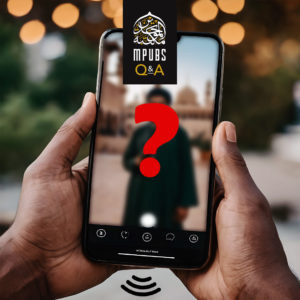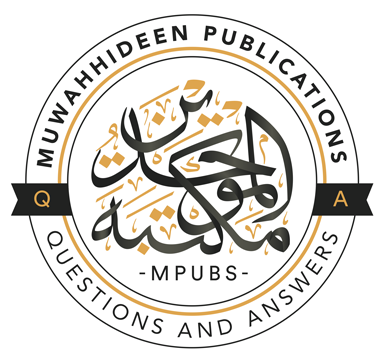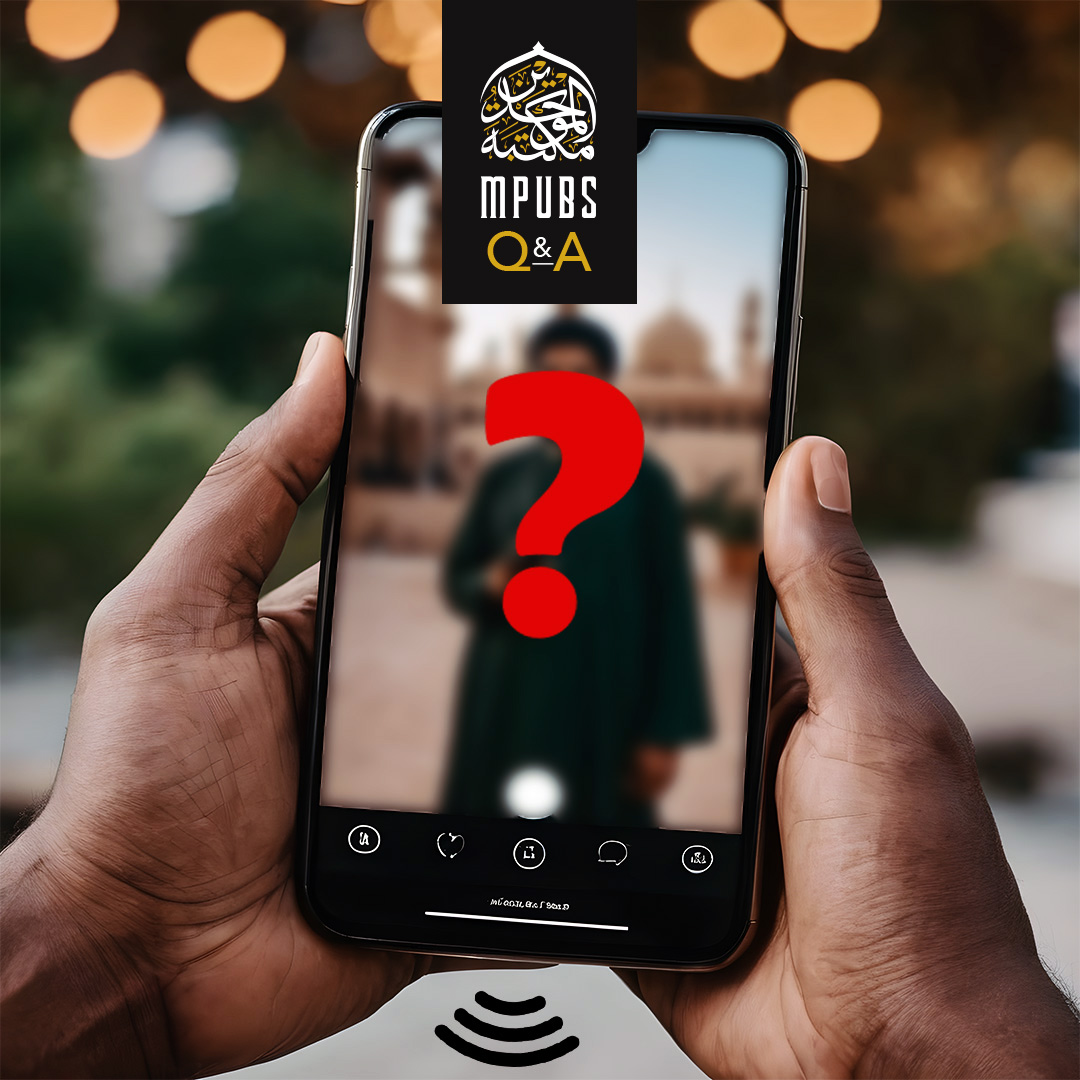Pivotal Excerpt
❝In the narration of ʿAbdullāh Ibn Masʿūd (رضى الله عنه), that noble companion, he warns against taking knowledge from someone that is unknown because you do not know the reality of this individual. ʿAbdullāh Ibn Masʿūd (رضى الله عنه) said,
.إنَّ الشَّيْطانَ لِيَتَمَثَّلُ في صُورَةِ الرَّجُلِ، فَيَأْتي القَوْمَ، فيُحَدِّثُهُمْ بالحَديثِ مِنَ الكَذِبِ، فَيَتَفَرَّقُونَ، فيَقولُ الرَّجُلُ منهمْ: سَمِعْتُ رَجُلًا أعْرِفُ وجْهَهُ، ولا أدْرِي ما اسْمُهُ يُحَدِّثُ
“The devil takes the form of a man. He comes to a people and narrates to them a ḥadīth that is a fabrication and a lie. The people (who listened to him) leave. One of the men who was listening will say, ‘I heard a man narrating a ḥadīth, I know his face, but I don’t know his name, and he was narrating a ḥadīth.”
Look at the danger of that. The consequence is that you are narrating from shayṭān.
Especially in this day and age where there are individuals that sit with books behind them and they tell our children and our brothers and sisters to go and join ISIS or Al-Qaeda or other extreme groups and they sit in America and they do not go anywhere. They are misguiding the Ummah. That is why some of the Salaf said, ‘take knowledge from those who are known.’ Those that you know are from ahl al-ḏhikr.❞
Question and Answer [6:11 Mins]
 Question:
Question:
Is it permissible to take knowledge from a person that is an unknown individual – majhūl, who’s ʿaqīdah and methodology are unknown?
Answer:
This has been addressed in the Qur’ān and Sunnah, by the Ṣaḥābah, and by the scholars of Al-Islām. In the Qur’ān, where does Allāh (عز وجل) direct us if we are unaware of certain matters in the religion and we need to ask questions? Allāh (عز وجل) says:
﴿ فَاسْأَلُوا أَهْلَ الذِّكْرِ إِنْ كُنْتُمْ لَا تَعْلَمُونَ ﴾
“Then ask the people of knowledge (the people of remembrance) if you do not know.” [Sūrah Al-Naḥl 16: 43]
Al-Shanqīṭī (رحمه الله) has a beautiful discussion about the context of this verse. “It can be used to refer to the scholars of this Ummah, so ask the scholars and people of knowledge of this Ummah.” Bārak Allāhu Fīkum.
Allah Commands Us To Ask The People Of Knowledge.
For our discussion here, Allāh said, ‘ask,’ which is a command. Who does Allāh command us to ask? The people of al-dhikr, the people of remembrance. These are people who are known for their knowledge. Their credibility is known. They are known because of their knowledge of the sharīʿah. Their knowledge of the Book of Allāh and the Sunnah of the Prophet ﷺ. Allāh did not say, ‘ask or listen to those who you come across while you do not know who they are.’
This Verse Is A Refutation Against Taking Knowledge From Unknown Individuals.
This verse clarifies the error in this approach and that you just listen to anyone that you come across. Because Allāh said
فَاسْأَلُوا أَهْلَ الذِّكْرِ إِنْ كُنْتُمْ لَا تَعْلَمُونَ
Allāh specified a group of people. Ask the people of knowledge if you do not know. Likewise, we have the ḥadīth that some of the scholars declare to be sound due to supporting narrations. However, some scholars say it is ḍaʿīf, – weak, but the meaning is correct.
يحمِلُ هذا العلمَ من كلِّ خلَفٍ عدولُه
“This knowledge will be carried by the trustworthy ones of every generation.”
Meaning al-ʿadl – the just ones. You know them. You know their reliability, their integrity and you know their ʿaqīdah. You know their methodology. You know their knowledge.
We find in the introduction of ṣaḥīḥ Muslim,
باب النهي عن الرواية عن الضعفاء والاحتياط في تحملها
“Being cautious of narrating from someone that is weak.”
This is even more so for someone that is unknown.
ʿAbdullāh Ibn Masʿūd (رضى الله عنه) Warned Against Narrating From Shayṭān
In the narration of ʿAbdullāh Ibn Masʿūd (رضى الله عنه), that noble companion, he warns against taking knowledge from someone that is unknown because you do not know the reality of this individual. ʿAbdullāh Ibn Masʿūd (رضى الله عنه) said,
.إنَّ الشَّيْطانَ لِيَتَمَثَّلُ في صُورَةِ الرَّجُلِ، فَيَأْتي القَوْمَ، فيُحَدِّثُهُمْ بالحَديثِ مِنَ الكَذِبِ، فَيَتَفَرَّقُونَ، فيَقولُ الرَّجُلُ منهمْ: سَمِعْتُ رَجُلًا أعْرِفُ وجْهَهُ، ولا أدْرِي ما اسْمُهُ يُحَدِّثُ
“The devil takes the form of a man. He comes to a people and narrates to them a ḥadīth that is a fabrication and a lie. The people (who listened to him) leave. One of the men who was listening will say, ‘I heard a man narrating a ḥadīth, I know his face, but I don’t know his name, and he was narrating a ḥadīth.”
Look at the danger of that. The consequence is that you are narrating from shayṭān.
Especially in this day and age where there are individuals that sit with books behind them and they tell our children and our brothers and sisters to go and join ISIS or Al-Qaeda or other extreme groups and they sit in America and they do not go anywhere. They are misguiding the Ummah. That is why some of the Salaf said, ‘take knowledge from those who are known.’ Those that you know are from ahl al-ḏhikr.
Rulings Related To The Current Events And Benefitting From Lessons
As it relates to fatāwā al-nawāzil, that is, fatāwā connected to current events, then return to the senior scholars, and those who the senior scholars advise us to return to in these affairs. As for benefiting from lessons, again, this means benefiting from those that the scholars recommend or that are known to be individuals that teach tawḥīd and teach the sunnah, wa lillāhil ḥamd. Bārak Allāhu Fīkum. That is why we have the famous narration of Muḥammad ibn Sīrīn (رحمه الله)
إن هذا العلم دين فانظروا عمن تأخذون دينكم
“indeed this knowledge is your religion, so look where you take your religion from.”
That should be written in gold. Even in terms of commone sense. As it relates to your health, (if you were sick) you would not just go in a corner store and start asking people about your ailment, sickness, or your medical condition. You would not do that. No sensible person would do that. And your religion is more precious than that. Therefore we should be even more selective where we take religious knowledge from and who we ask. Bārak Allāhu Fīkum.
Alḥamdulillāh, there are many scholars of Tawḥīd and Sunnah that are still alive. And alḥamdulillāh, we have the books and fatāwā of the scholars of Tawḥīd and Sunnah, and likewise their students are around the world and Allāh (عز وجل) has made knowledge accessible, wa Jazākum Allāhu khayr.

